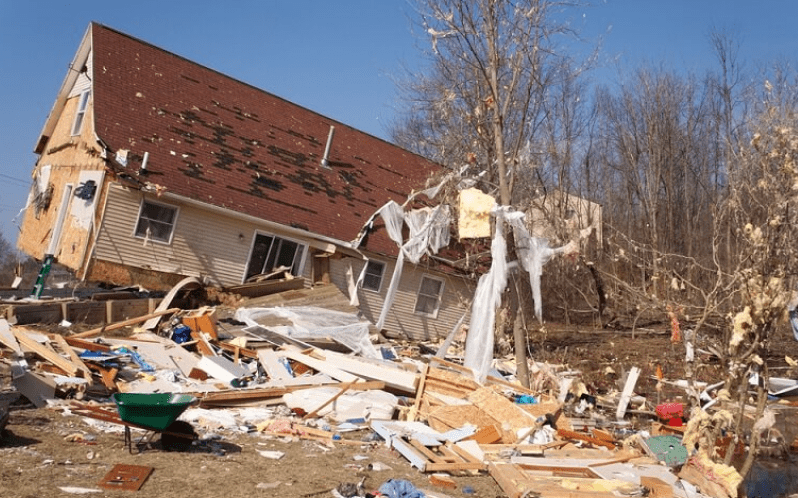When it comes to protecting your living space and personal belongings, understanding the differences between homeowners and renters insurance is crucial. While both types of insurance provide coverage for unexpected events, such as theft, fire, or natural disasters, they cater to different needs and offer varying levels of protection. This article will explore the key differences between homeowners and renters insurance, what each policy typically covers, and why having the right insurance is important for both homeowners and renters.
1. Understanding Homeowners Insurance
Homeowners insurance is a type of property insurance that provides coverage for private residences. This policy is designed to protect both the structure of the home and the personal belongings of the homeowner. It also includes liability coverage, which protects the homeowner against legal claims if someone is injured on their property. Homeowners insurance is typically required by mortgage lenders as a condition for obtaining a home loan, ensuring that the lender’s investment is protected.
What Does Homeowners Insurance Cover?
Homeowners insurance generally provides a broad range of coverage, which can be categorized into four main areas:
- Dwelling Coverage: This covers the physical structure of the home, including the walls, roof, and foundation, against damage from events such as fire, windstorms, hail, and vandalism. If the home is damaged or destroyed, dwelling coverage helps pay for repairs or rebuilding.
- Other Structures Coverage: This part of the policy covers structures on the property that are not attached to the main house, such as detached garages, sheds, fences, and guest houses. Like dwelling coverage, it protects these structures from various perils.
- Personal Property Coverage: This covers the homeowner’s personal belongings, such as furniture, electronics, clothing, and appliances. If these items are damaged, destroyed, or stolen, personal property coverage helps replace or repair them. This coverage extends to belongings even when they are not inside the home, such as items stolen from a car or while traveling.
- Liability Coverage: Liability protection is a crucial component of homeowners insurance. It covers legal expenses and medical costs if someone is injured on the homeowner’s property or if the homeowner accidentally causes damage to someone else’s property. This coverage also includes legal defense costs if the homeowner is sued.
- Additional Living Expenses (ALE): If the home is uninhabitable due to a covered loss, ALE coverage helps pay for temporary living expenses, such as hotel stays, restaurant meals, and other costs incurred while the home is being repaired or rebuilt.

2. Understanding Renters Insurance
Renters insurance is a type of property insurance designed specifically for tenants who rent their living spaces, such as apartments, condos, or houses. Unlike homeowners insurance, renters insurance does not cover the structure of the building, as this is the responsibility of the landlord or property owner. Instead, renters insurance focuses on protecting the tenant’s personal belongings and providing liability coverage. Renters insurance is generally not required by law, but many landlords and property management companies require tenants to carry it as a condition of the lease.
What Does Renters Insurance Cover?
Renters insurance provides coverage that can be categorized into three main areas:
- Personal Property Coverage: This covers the tenant’s personal belongings, such as clothing, electronics, furniture, and other household items. If these items are damaged, destroyed, or stolen due to covered perils, such as fire, theft, vandalism, or certain natural disasters, renters insurance helps replace or repair them. Like homeowners insurance, this coverage also extends to belongings outside the rented property.
- Liability Coverage: Renters insurance includes liability protection, which covers legal expenses and medical costs if someone is injured in the tenant’s rental unit or if the tenant accidentally causes damage to someone else’s property. This coverage can also provide legal defense if the tenant is sued.
- Additional Living Expenses (ALE): If the rental unit becomes uninhabitable due to a covered event, ALE coverage helps pay for temporary living expenses, such as hotel stays, food, and other costs associated with being displaced from the rental unit.
3. Key Differences Between Homeowners and Renters Insurance
While both homeowners and renters insurance provide important protection, there are several key differences between the two types of coverage:
1. Coverage for the Structure of the Building
- Homeowners Insurance: Homeowners insurance covers the physical structure of the home, including the walls, roof, and foundation. This coverage is essential for homeowners because they are responsible for maintaining and repairing their property. If the home is damaged or destroyed by a covered event, such as a fire or a storm, homeowners insurance helps pay for repairs or rebuilding.
- Renters Insurance: Renters insurance does not cover the structure of the building. Instead, it focuses solely on the tenant’s personal belongings and liability protection. The landlord’s insurance policy typically covers the building itself and any damage to the structure.
2. Cost of Insurance
- Homeowners Insurance: Homeowners insurance tends to be more expensive than renters insurance because it provides more comprehensive coverage, including protection for the structure of the home. The cost of homeowners insurance varies based on factors such as the home’s location, size, age, and construction materials, as well as the coverage limits and deductible chosen by the homeowner.
- Renters Insurance: Renters insurance is generally more affordable than homeowners insurance, as it covers only personal belongings and liability, not the building itself. The cost of renters insurance is influenced by factors such as the rental unit’s location, the value of the tenant’s belongings, and the coverage limits and deductible chosen by the tenant.
3. Policy Requirements
- Homeowners Insurance: Homeowners insurance is often required by mortgage lenders as a condition for obtaining a home loan. This requirement ensures that the lender’s investment in the property is protected in case of damage or destruction.
- Renters Insurance: Renters insurance is not required by law, but many landlords and property management companies require tenants to carry it as a condition of the lease. This requirement protects both the tenant and the landlord by ensuring that the tenant’s belongings are covered and that liability protection is in place.

4. Responsibility for the Property
- Homeowners Insurance: Homeowners are responsible for maintaining and repairing their property, including the structure of the home and any attached or detached structures. Homeowners insurance provides coverage for these responsibilities, offering financial protection against damage from covered events.
- Renters Insurance: Tenants are not responsible for maintaining or repairing the structure of the rental unit; this is the responsibility of the landlord or property owner. Renters insurance focuses on protecting the tenant’s personal belongings and providing liability coverage, rather than covering the building itself.
4. Why Having the Right Insurance is Important
Having the right insurance is essential for both homeowners and renters, as it provides financial protection and peace of mind. Without adequate insurance coverage, individuals may face significant financial burdens in the event of damage, theft, or liability claims. Here are some reasons why having the right insurance is important:
Protection Against Financial Loss
- Homeowners: Homeowners insurance protects against significant financial losses by covering the cost of repairing or rebuilding the home and replacing personal belongings. Without insurance, homeowners would be responsible for covering these costs out of pocket, which could be financially devastating.
- Renters: Renters insurance provides valuable protection for tenants’ personal belongings, which can be expensive to replace if damaged or stolen. Additionally, liability coverage protects tenants from the financial consequences of legal claims, such as medical expenses or property damage.
Liability Protection
Both homeowners and renters insurance provide liability coverage, which is essential for protecting against legal claims. If someone is injured on your property or if you accidentally cause damage to someone else’s property, liability coverage helps cover legal expenses, medical costs, and potential settlements. Without liability insurance, individuals could be personally responsible for these costs, leading to financial hardship.
Compliance with Lease or Mortgage Requirements
- Homeowners: Most mortgage lenders require homeowners to carry insurance as a condition of the loan. Failure to maintain adequate coverage could result in the lender purchasing insurance on behalf of the homeowner, often at a higher cost.
- Renters: Many landlords require tenants to have renters insurance as a condition of the lease. Having renters insurance not only complies with lease requirements but also provides valuable protection for the tenant’s personal belongings and liability.
Conclusion
Homeowners and renters insurance serve different purposes, but both are essential for protecting against unexpected events. Homeowners insurance provides comprehensive coverage for the structure of the home, personal belongings, and liability, while renters insurance focuses on protecting tenants’ personal belongings and liability. Understanding the differences between these two types of insurance helps individuals make informed decisions about their coverage needs, ensuring that they have the right protection in place for their living situation. Whether you own your home or rent your living space, having the appropriate insurance coverage is a crucial step in safeguarding your financial future and peace of mind.



